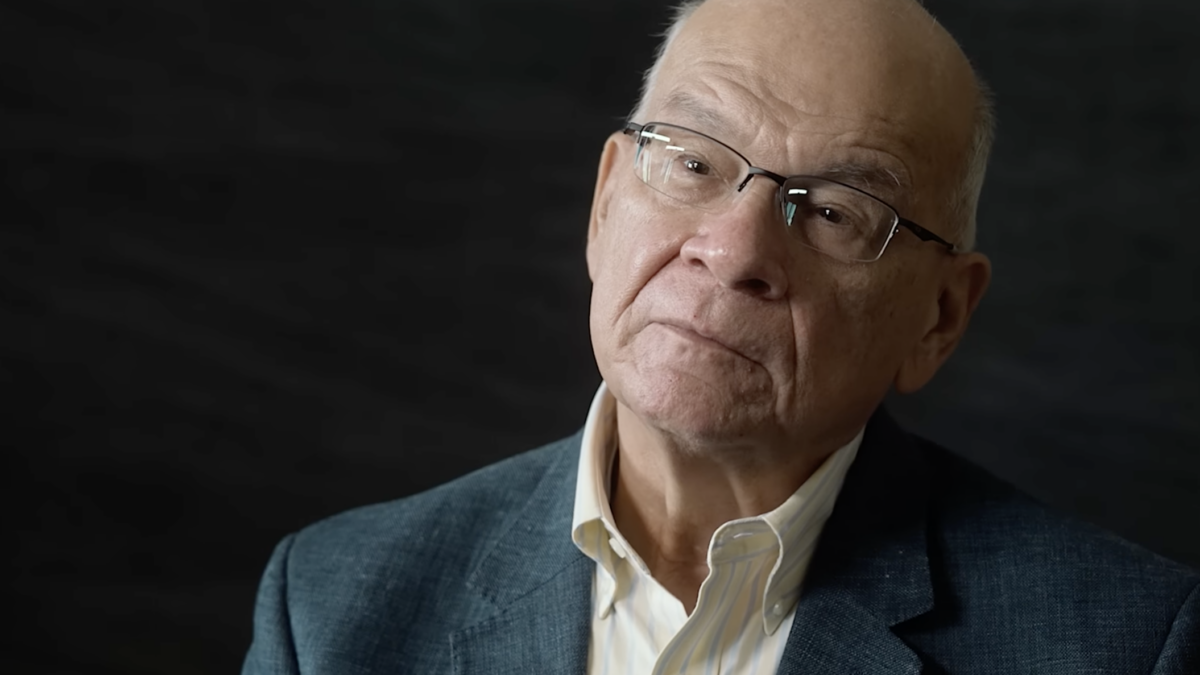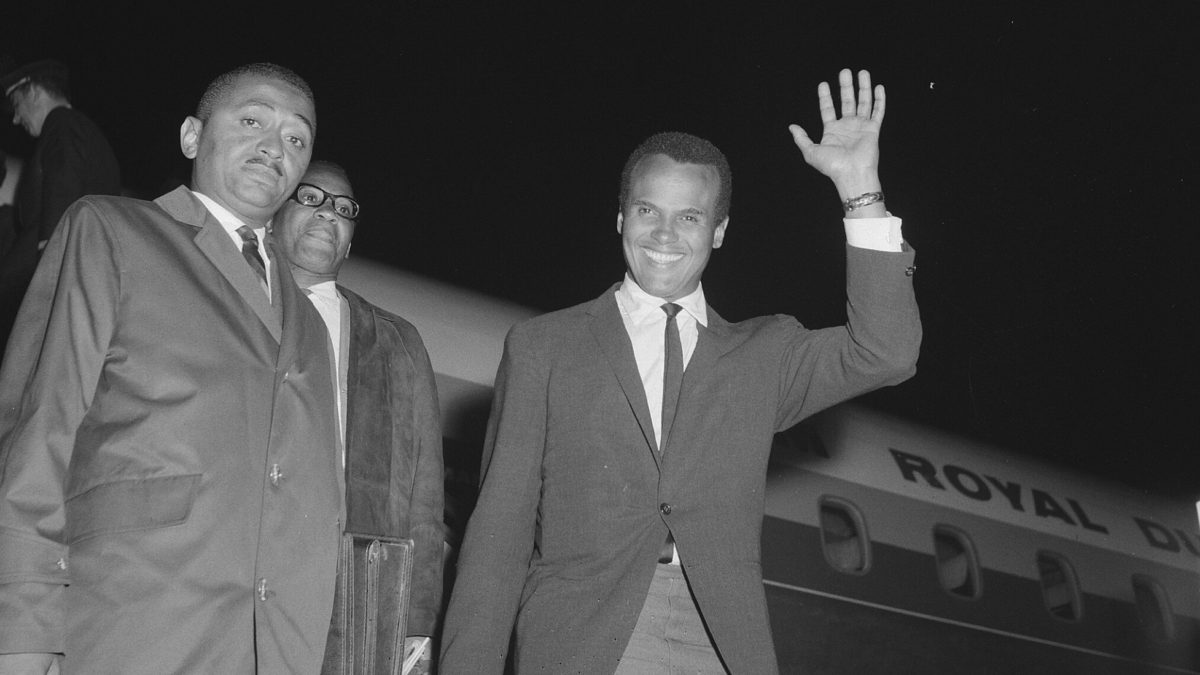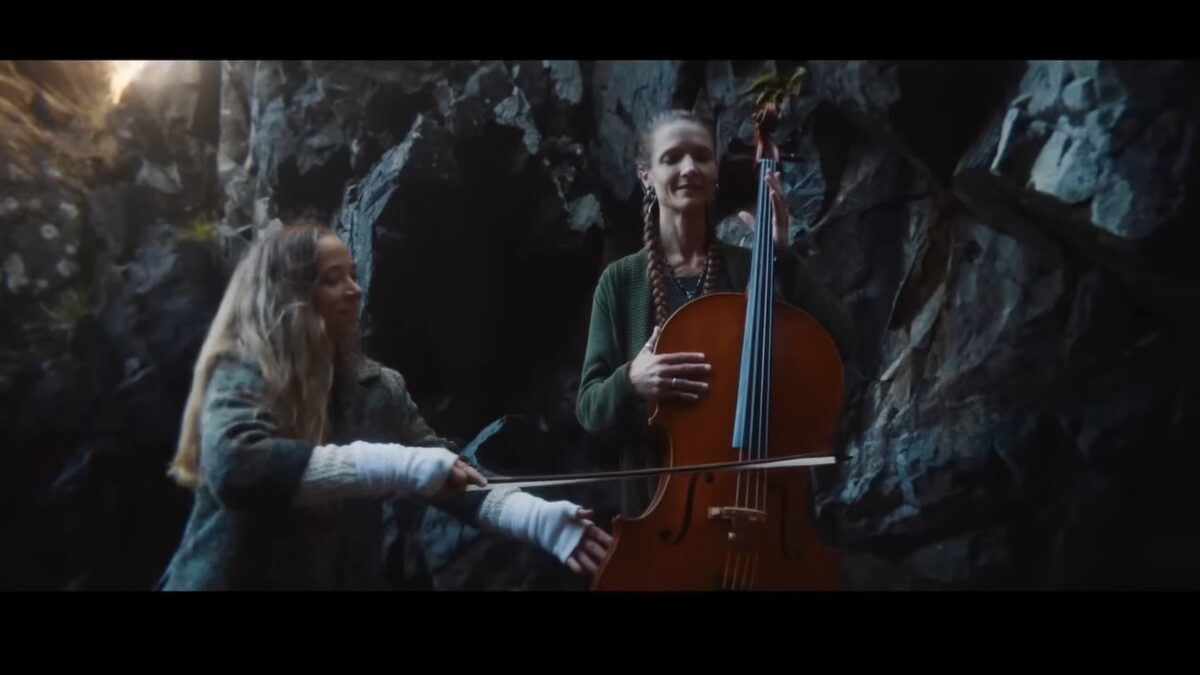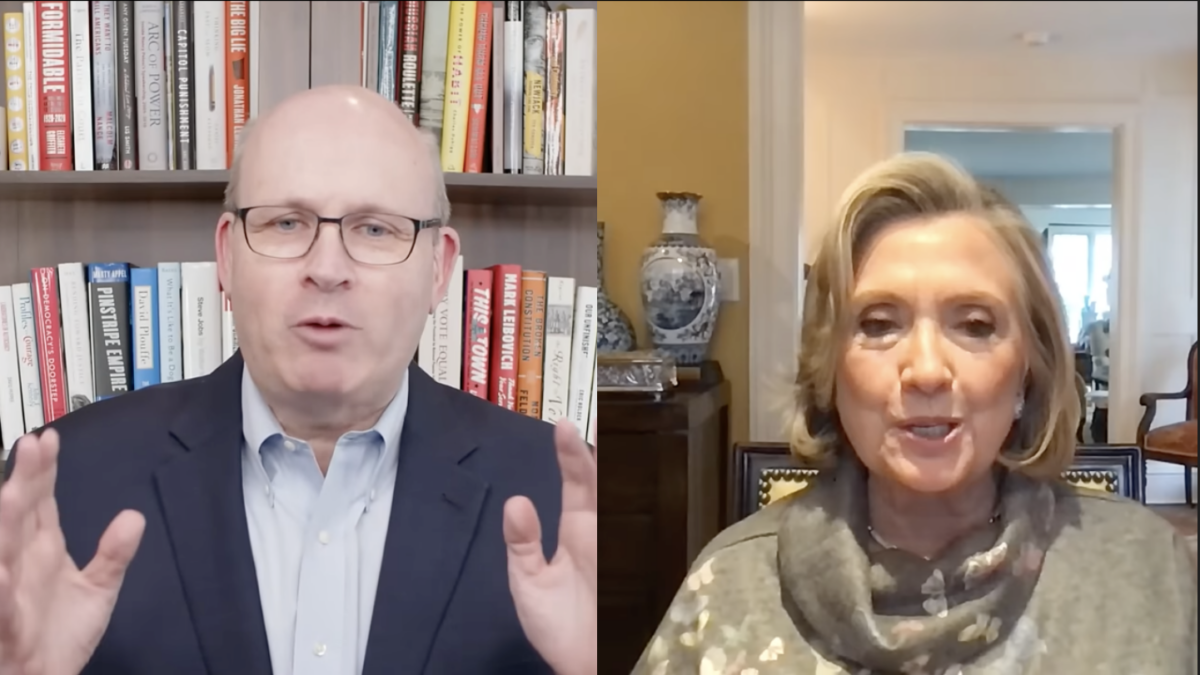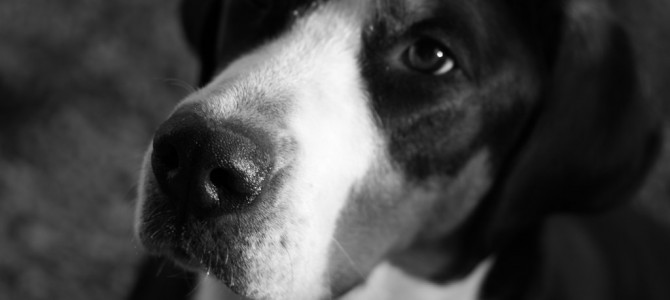
When we first moved into our house, grass grew at the edge of the pea gravel that covered the outdoor storage area just outside the storeroom, underneath the second-floor deck. Shortly after we moved in, that grass gave way to ruts and stones kicked into the yard. Such is life with a big dog that was prone to launching herself from the gravel into the yard to bark at critters, begging them to jump the fence so she could give them a bit of a vigorous shaking.
The wasteland became part of the landscaping, a spot I had to mow around lest the mower send those rocks flying. Years passed; the spot grew. We didn’t even think about it, other than contemplating buying new gravel to be flung into the yard. Then, we went on vacation.
When you’re on vacation with the dogs boarded at the vet’s office, and you get an urgent call on a Saturday morning and you hear the vet’s sad tone, you know she’s not calling with good news. Although she did her best to remain professional and give the options, I knew there was only one. So when my vet called that Saturday, the Fourth of July, and told me the liver failure was too far gone, I asked, “Is it time to let her go?” I knew the answer before I asked the question.
It seems a cruel injustice that our dogs go before us, that we sometimes have to decide to let them go, especially when we’re four hours away and our big girl is unlikely to hold on even long enough for us to make it down for the final moments. So when I had to make that decision, when I had to say goodbye without getting to actually say goodbye to the first dog I’ve brought home since becoming an adult, I broke down in tears and told the doctor to let her go.
I didn’t want to. I wish I could’ve given a different answer, but life rarely follows the script we pretend we get to write. So I accepted the inevitable and let her have peace.
A Puppy ‘Til the End
Bindi, as we called her, despite her much longer and more formal name that I can never remember, wasn’t exactly a normal dog. Right up until her liver started to fail at eight and a half years old, she maintained all the exuberance of a puppy, albeit one that weighed 100 lbs. The pictures the vet took of her in her final moments were of a docile dog with that same puppy spirit animating her eyes; her body could simply no longer keep up.
See, Bindi was epileptic, and when she had seizures, she had cluster seizures. Cluster seizures, so called because they are cluster of grand mals bunched into a short period of time, are particularly bad for any living organism, four-legged or otherwise. So we had to go aggressive.
The magic dose of aggressive ended up being 400mg of phenobarbital per day. It worked. Bindi didn’t have seizures for the last few years of her life. The drugs didn’t even slow her down. That aggressive treatment is also what caused her liver to fail. Four hundred milligrams per day of phenobarbital is a hefty dose, and Bindi ended up in the extremely small minority of dogs that suffered liver damage as result.
But that’s not the story of her life. No, Bindi’s story is not captured in those waning days, in that miserable phone call. Hers is a story of a boy and his dog, of a boy and a puppy becoming a man and his dog.
When I got her, I was good at playing adult, but I wasn’t quite there yet. But she was with me as I moved forward and became responsible (at least mostly responsible). She was the first luxury. We had to have a house for shelter. I had to get a new car so I could continue to go to work to pay for the house. I didn’t have to have a dog, but I could have a dog. I’d made it that far.
A Few More Gleams in My Eye
Since she was a purebred, we actually waited on her to be born and ready. While waiting, we discovered hers was not the only birth we were waiting on. Undeterred, or maybe just stupid, we forged ahead with the dog even as we waited for our first child.
Bindi was a Greater Swiss Mountain Dog, a breed known for being mild-mannered and calm. She was neither of those things, at least not with anyone but me. She was very smart, though. Having a really smart dog is akin to having a really active toddler, with even less of a conscience. It’s all plotting and scheming all the time. Also, there’s the stupidity that comes with being just smart enough coupled with a time horizon that stretches all the way to a minute or two from the present.
Once, I had the windows rolled down with her in the backseat and was pulling into the driveway. Rather than do the normal thing and wait for the car to stop, she dove out as I turned. The neighbors said it was a perfect tuck and roll. Not that I really blame her. It was dinnertime, and she was just hurrying to the door to go inside and eat.
Another time, I was prepping some mahi mahi and left the kitchen for a few seconds, so she helped herself to some tasty sushi. Her digestive tract was a little more tolerant to a fish we humans normally wouldn’t ingest raw.
She also had patience, like the time I was totally paying attention to her and my daughter Greer after the latter had arrived and grown a bit. I started hearing Greer say, “Eye, eye, eye.” I looked over, and with each enunciation, Greer poked Bindi in the eye. Bindi just laid there and took it.
As I aged and added more to the brood, she remained constant. My big galloping beast, the most reliable part of every day. Always ready to be poked in the eye by each new addition. Never jealous of the new little ones, just ecstatic to be part of the growing pack.
Illness Strikes
Before we could add to the pack, though, we had to expand. With Greer and the daily commute, that first house—the one without pea gravel—became insufficient. It was tough finding the right fit, so we did what most people shopping for homes do and settled on the closest approximation, meaning we found something that barely resembled what we had set out to buy.
We erected a fence. We got another dog—one we adopted that is mostly content just to have the opportunity to try killing the cat every so often. Then we had another kid and then, for good measure, we had one more kid.
Shortly before the birth of our third, my wife called. “Bindi is blind. It’s like she doesn’t recognize me. Something’s wrong.” I headed home and sat with her, looking up things on my phone. She was acting oddly, but seemed mostly on the uptick.
The symptoms my wife encountered, though, sounded like those that accompanied seizures. Then, affirming my suspicion, she began snapping at an imaginary swarm of flies and collapsed in a fit. Again. And again.
The vet got everything under control, and it simply became a matter of administering the drugs. She was epileptic, sure, but it was something we could manage. Little did we know the damage that was occurring.
The Simple Joy of Destruction and Disruption
In hindsight, we’d likely make the same choice to aggressively medicate. Her epilepsy was as energetic as she was, and the alternative treatments wouldn’t have worked. It would’ve been a game of responding to the seizures when they happened rather than preventing them, and dealing with the damage those seizures had the potential to cause.
So we went along, blissfully unaware. We had our beloved family dog; I had my big girl, always waiting for the end of the day when we’d retire to the backyard and play fetch, or just relax once I realized she was more intent on playing keep-away and that I didn’t greatly desire to have a slobber-drenched toy.
In summer, it was a bit cooler in the evenings so she could enjoy the outdoors without wholly sweltering. In the winter, her Swiss ancestry shined. Cold? What’s cold? Bindi would venture out into zero-degree temps and snow and give a glance that said, “Imma eat this chunk of ice.” Then she would.
In either case, it was the quiet close to every day: the time when noise stopped and a man contemplated tomorrow while his dog contemplated a minute or two into the future, both content in the moment and the promise of what lay ahead.
Just beyond the pea gravel under the second-floor deck in the backyard, we have grass again. The rocks remain in place, even if I still need to add more. But the grass grows; its eruption a little reminder that even in death there is life, although I miss my ruts and displaced stones. Those misshapen disruptions are where life, the life we’ll always remember, happens.



